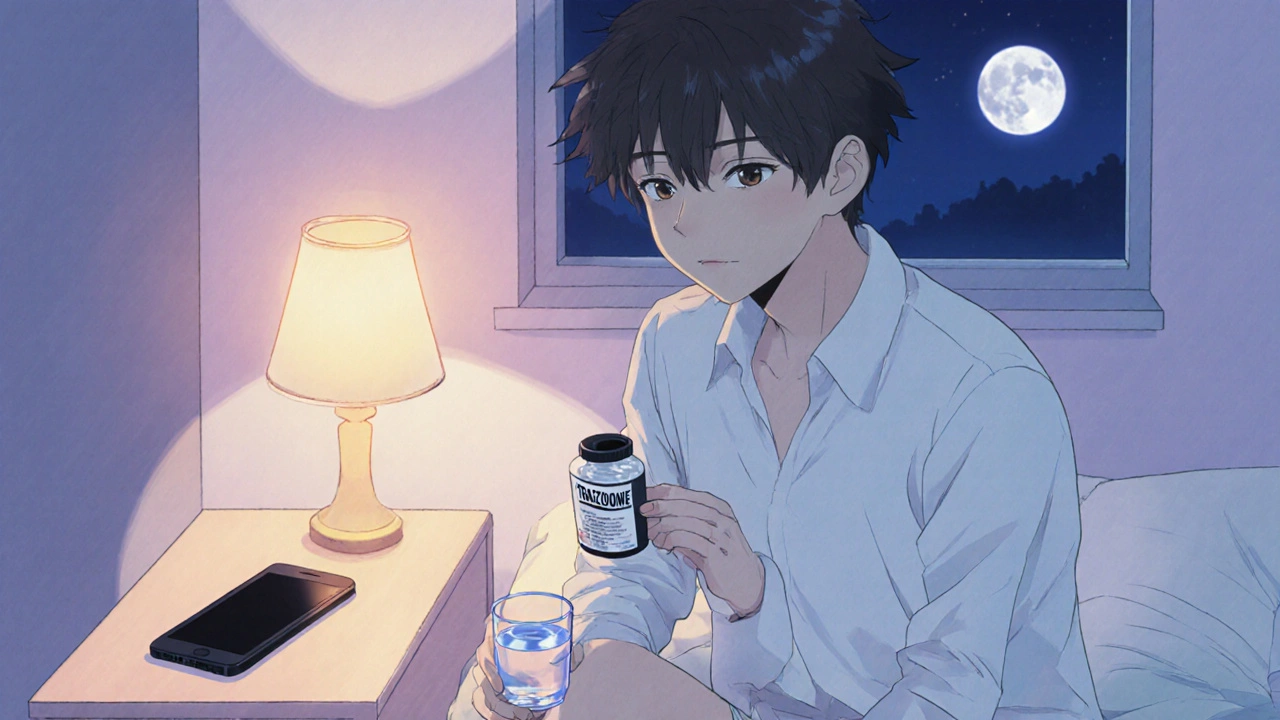Trazodone: What It Is, How It Works, and What Alternatives Exist
When doctors prescribe Trazodone, a serotonin modulator used primarily for depression and insomnia. Also known as Desyrel, it’s one of the few medications that can help you sleep without being a traditional sedative. Unlike benzodiazepines or even melatonin, Trazodone works by adjusting serotonin levels in your brain—enough to lift mood, but not so much that it keeps you wired at night. That’s why so many people end up taking it for sleep, even if their main issue isn’t depression.
It’s not a quick fix. Trazodone takes days to build up in your system, and the sleep effects often show up before the mood improvements. People who’ve tried other sleep aids like Ambien or even over-the-counter antihistamines sometimes switch to Trazodone because it doesn’t cause next-day grogginess—or at least, not as much. But it’s not for everyone. If you have heart problems, liver issues, or take other antidepressants, the risks can climb fast. That’s why it’s often compared to other serotonin-targeting drugs like Mirtazapine, an antidepressant that also promotes sleep and increases appetite, or Trazodone’s cousin, Doxepin, a tricyclic antidepressant used at low doses for insomnia. Both are used for similar reasons, but each has its own side effect profile and dosing quirks.
What you’ll find in the posts below isn’t just a list of drug names. It’s a practical breakdown of how Trazodone stacks up against other treatments—what works better for sleep, what’s cheaper, what’s safer long-term, and which ones come with fewer side effects. You’ll see direct comparisons with other antidepressants, sleep aids, and even natural options people turn to when pills don’t sit right. No fluff. No marketing. Just real talk about what these drugs do, how they feel, and who they help most.

Trazodone and Sleep Hygiene: Proven Tips for Better Rest
Learn how to combine trazodone with proven sleep hygiene habits to improve insomnia, reduce side‑effects, and achieve consistent, restorative rest.
